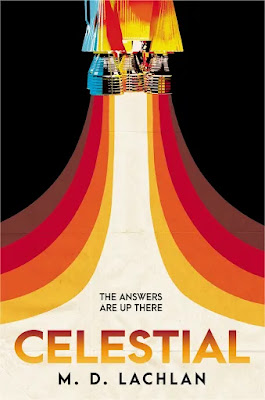 Tot això condensat en l'entorn aïllat d'una nau espacial situada a molts anys llum del nostre planeta. És a dir, la novel·la es pot entendre com un experiment mental fet al millor laboratori possible (fa poc vaig gaudir de La nau de Pau Planas, amb un plantejament de base similar, si bé el llibre se centra en altres aspectes).
Tot això condensat en l'entorn aïllat d'una nau espacial situada a molts anys llum del nostre planeta. És a dir, la novel·la es pot entendre com un experiment mental fet al millor laboratori possible (fa poc vaig gaudir de La nau de Pau Planas, amb un plantejament de base similar, si bé el llibre se centra en altres aspectes).THE WORD FOR THE BLOG IS SCIENTIFICTION
viernes, 9 de junio de 2023
La plantilla d'Olga Ravn
 Tot això condensat en l'entorn aïllat d'una nau espacial situada a molts anys llum del nostre planeta. És a dir, la novel·la es pot entendre com un experiment mental fet al millor laboratori possible (fa poc vaig gaudir de La nau de Pau Planas, amb un plantejament de base similar, si bé el llibre se centra en altres aspectes).
Tot això condensat en l'entorn aïllat d'una nau espacial situada a molts anys llum del nostre planeta. És a dir, la novel·la es pot entendre com un experiment mental fet al millor laboratori possible (fa poc vaig gaudir de La nau de Pau Planas, amb un plantejament de base similar, si bé el llibre se centra en altres aspectes).miércoles, 8 de marzo de 2023
Moonraker by Ian Fleming
(I know there could be some mistakes in this review. I’m trying to improve my English, thanks)
Having seen all the movies, this is my first James Bond novel and I was pleasantly surprised at how entertaining it was the reading. I started with Moonraker because it is the highest rated in the series.
To begin I must say that the book is very different from the movie. In this regard, contrary to many opinions, I liked Roger Moore's film (it might have something to do with the fact that it was science fiction ;-).
 |
| First paperback edition UK (1961) |
On the other hand, I was very intrigued by the treatment of women in the 007 novels. Well, no surprise here, the man commands and disposes, in accordance with the prevailing ideas of the time (the novel was published in 1955). However, it should be noted that the heroine, Miss Gala Brand, actively participates in the plot and, by the way, she resists the charms of James Bond (but because she is engaged to another man). More peculiar is the author description -in the mouth of James Bond- of the women who work as MI5 secretaries, destined to be "spinsters", since a love relationship is incompatible with the necessary discretion in their work, which is not the case with the men.
No surprise either with 007's main adversary, Hugo Drax, as evil as you would expect.
lunes, 27 de febrero de 2023
Eversion by Alastair Reynolds
Too bad I don't have enough time to comment properly this novel. Suffice it to say that it is good science fiction and that I am happy to know that, with so many first novels currently being published (nothing against new authors, of course, all of them are very welcome), established writers like Alastair Reynolds are still contributing with their talented works to the science fiction genre.
La nau de Pau Planas
jueves, 2 de febrero de 2023
La glàndula d'Ícar d'Anna Starobínets
El llibre conté set relats i cadascun recrea un petit univers, un univers amb la signatura de l`autora.
jueves, 5 de enero de 2023
Celestial by M. D. Lachlan
(I know there could be some mistakes in this review. I’m trying to improve my English, thanks)
A peculiar reading, with a taste of New Wave but adapted to current times. I started reading this book because a known author recommended it. So I started without even having read the synopsis and I must confess that my expectation was one and the reading experience has been quite different. When I started reading I thought it was a hard alternative history novel about the Space Race between the United States of America and the Soviet Union, Ian Sales style, and I found a very different story; although some aspect that Mr. Sales develops in The Apollo Quartet stories (highly recommended by the way) is also present here but... my lips are sealed.
In summary, in my opinion what the author proposes is difficult to achieve, but I believe that he comes out successful with the proposal.
domingo, 1 de enero de 2023
The Twilight Zone: Rod Serling and the Birth of Television by Koren Shadmi
(I know there could be some mistakes in this review. I’m trying to improve my English, thanks)
Lately I've been interested in historical and biographical comics and this is a good example of what I like: a biography of the creator of the cult series Twilight Zone.

.png)




